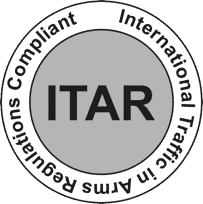Quartz is a hard, crystalline material commonly used in various industrial applications. It is regarded for its exceptional hardness and resistance to abrasion, making it ideal for precise machining. However, quartz machining presents formidable challenges due to its remarkable hardness. This necessitates utilizing specialized equipment and tailored techniques for handling such demanding materials. In this…
The Future of Grinding Machining: Trends and Techniques
Grinding machining removes material from a workpiece by abrasion, typically using a rotating abrasive wheel. It is commonly used to achieve high precision and surface quality in manufacturing metal, ceramic, and composite components. This process is widely utilized across industries such as automotive, aerospace, and healthcare to produce parts with tight tolerances and smooth surfaces….
Cutting-Edge Approaches to Machining Ceramics: Industry Insights
Ceramic machining is the process of shaping and refining ceramic materials through various mechanical methods. It involves precision techniques like cutting, grinding, and milling to achieve desired shapes and dimensions. Moreover, its precise and controlled manufacturing approach guarantees the reliability and functionality of ceramic parts in diverse technological applications. Over the years, the process of…
Precision and Perfection: The Science of Machining Ceramic Materials
As industries continue pushing the boundaries of material capabilities, ceramic machining remains vital to achieving precise and reliable components. It is the process of shaping and finishing ceramic materials through various mechanical methods. This manufacturing method involves cutting, grinding, and polishing parts to achieve specific dimensions and surface finishes. This article explores the scientific principles…
The Importance of ITAR Compliance in the Military Industry: Why Working With ITAR Certified Vendors Matters
The International Traffic in Arms Regulations (ITAR) governs the import and export of military data, technology, and equipment as specified in the United States Munitions List (USML). Any company that produces, sells, or transports defense-related goods and services must prioritize ITAR compliance as a matter of national security. What Is ITAR Compliance? Under ITAR regulations,…
Ferrite Core Grinding: A Guide
Ferrite is a metal compound that manufacturers use to produce magnetized ceramic for signal transformers, power transformers, speakers, and other electric or electronic goods. Ferrite contains iron oxide as well as other metals like barium, nickel, or zinc. At Quartzite Processing, we grind and machine ferrite magnets for manufacturers around the world, with ship-to-stock and…
Quartz Pressure Windows: What They Are and How They Are Made
Quartz pressure windows feature unique characteristics that make them well-suited to challenging environmental conditions. However, machining quartz glass requires specialized equipment and technical expertise. This blog will discuss quartz glass properties, uses for quartz, and how Quartzite Processing Inc. processes this material. What are Fused Quartz Windows? Click to Enlarge Fused quartz is manufactured by…
The Application of Ferrites in Millimeter Wave Components: An Overview
Quartzite Processing, Inc. provides ferrite machining services, grinding molded ferrite materials to produce parts for various industries. Common products include millimeter wave ferrites. Learn more here about the features, benefits, and applications of ferrites in millimeter wave components. What Are Ferrites? Ferrite is an inorganic substance made by combining iron oxide with different metallic elements…

